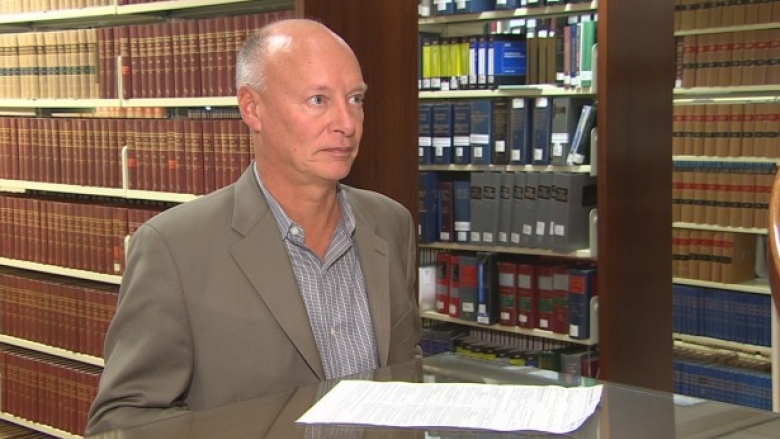Crown stays charge in case where officer didn’t speak French during traffic stop

Antoine Hacault says his charter rights were violated when an RCMP officer declined to respond to him in French during a traffic stop last year. (Radio-Canada)
The case was scheduled to go before a judge on Aug. 22, but the Crown has asked for a stay of proceedings.
Antoine Hacault was pulled over for an alleged speeding infraction last year while driving on Highway 59 in the French-majority community of St-Pierre-Jolys.
When the officer approached, Hacault spoke in his first language, French. The officer responded in English, and didn’t offer to speak in French, Hacault said.
Under the Official Languages Act and the Charter of Rights and Freedoms, Hacault argued, police in bilingually designated areas have an obligation to actively offer service in French.
“It’s disappointing that enforcement officers expect that citizens have to comply with the law, but that they can ignore the law,” Hacault said. “You would expect that law enforcement officers make sure that they comply with the law.
“You shouldn’t have to ask for it [bilingual service]. It should be offered in an active way.”
Manitoba RCMP did not offer comment on Hacault’s case, but a spokesperson told CBC News the RCMP has mechanisms in place to provide services in French.
An officer who cannot speak French can call dispatch and request a French-speaking officer, the spokesperson said.
Hacault said people shouldn’t have to wait for a bilingual officer to arrive: “They should have bilingual officers, period.”
The officer who pulled Hacault over was not from St-Pierre-Jolys, but had been temporarily transferred there from Selkirk, an English-speaking community.
A recent investigation by CBC News found that eight per cent of Manitoba RCMP positions are currently vacant, with rural areas especially hard hit.
Source (includes video): CBC News
